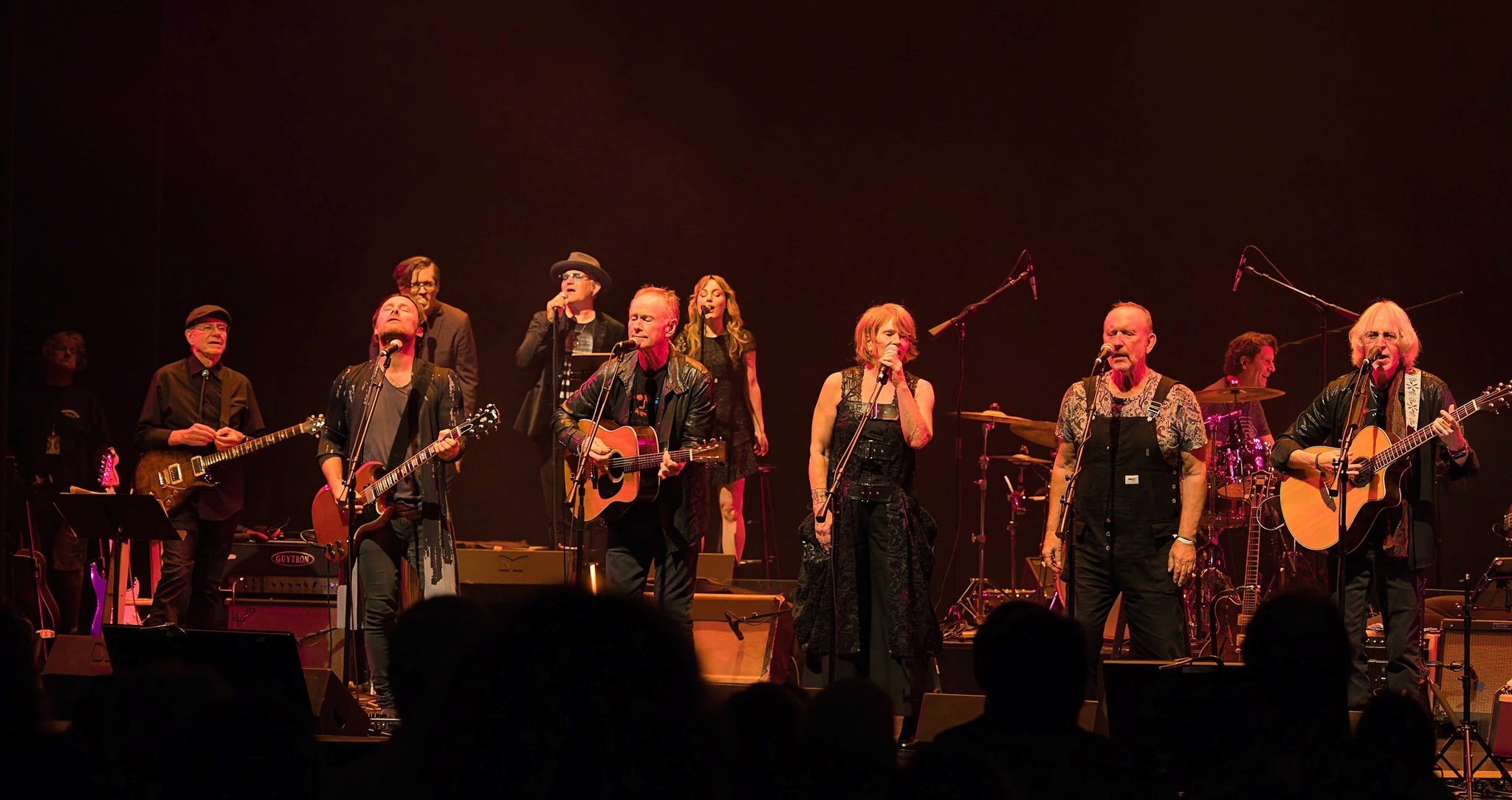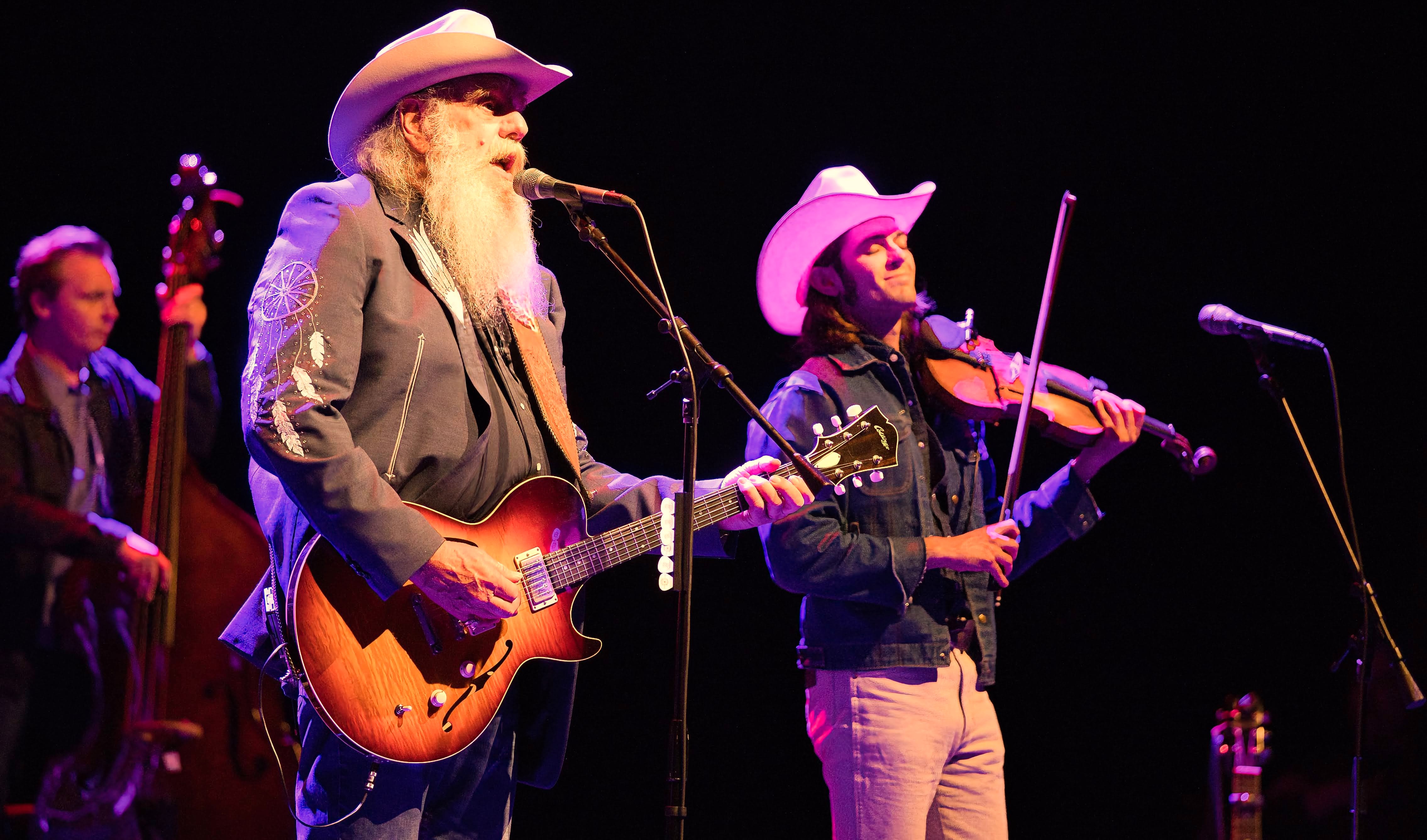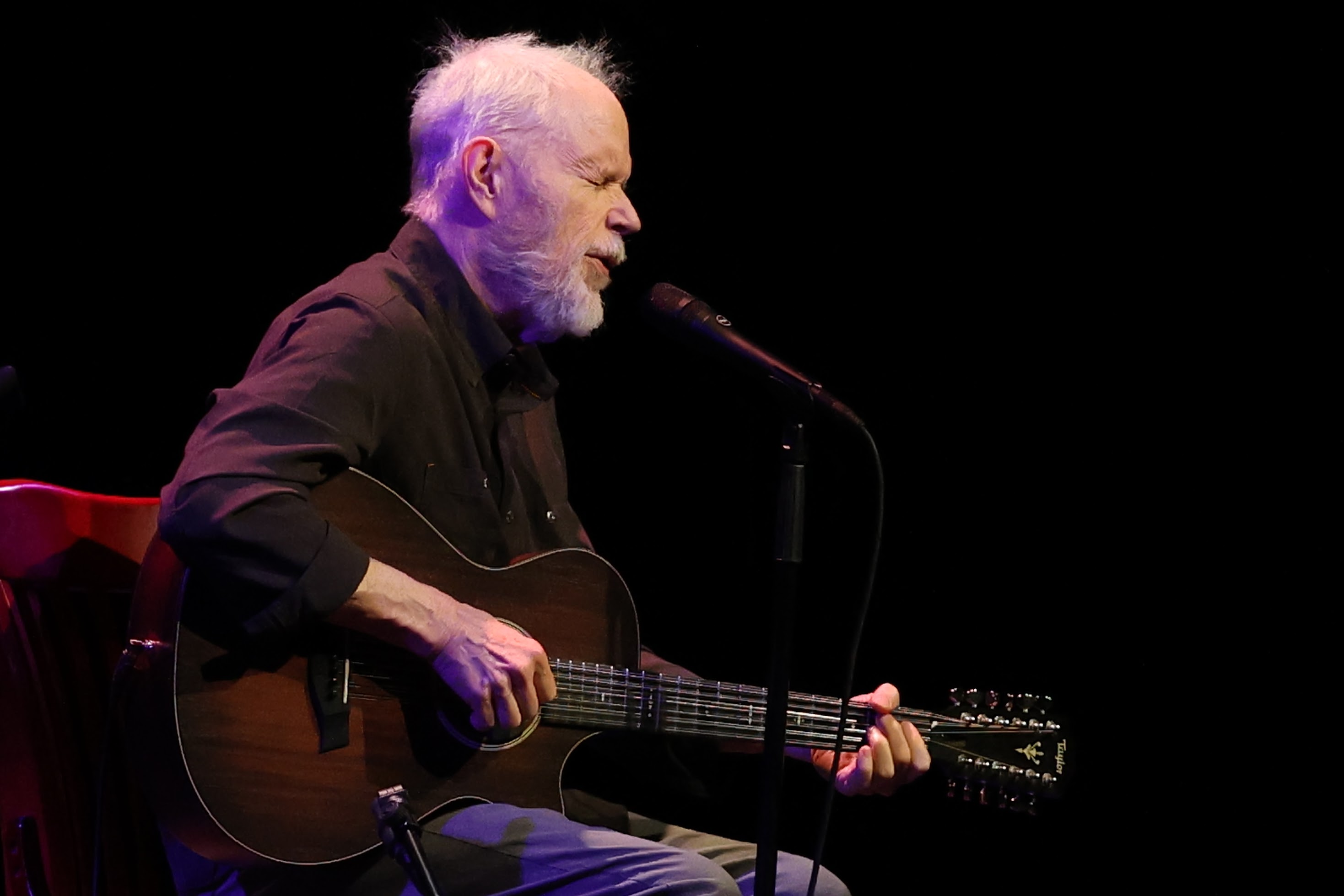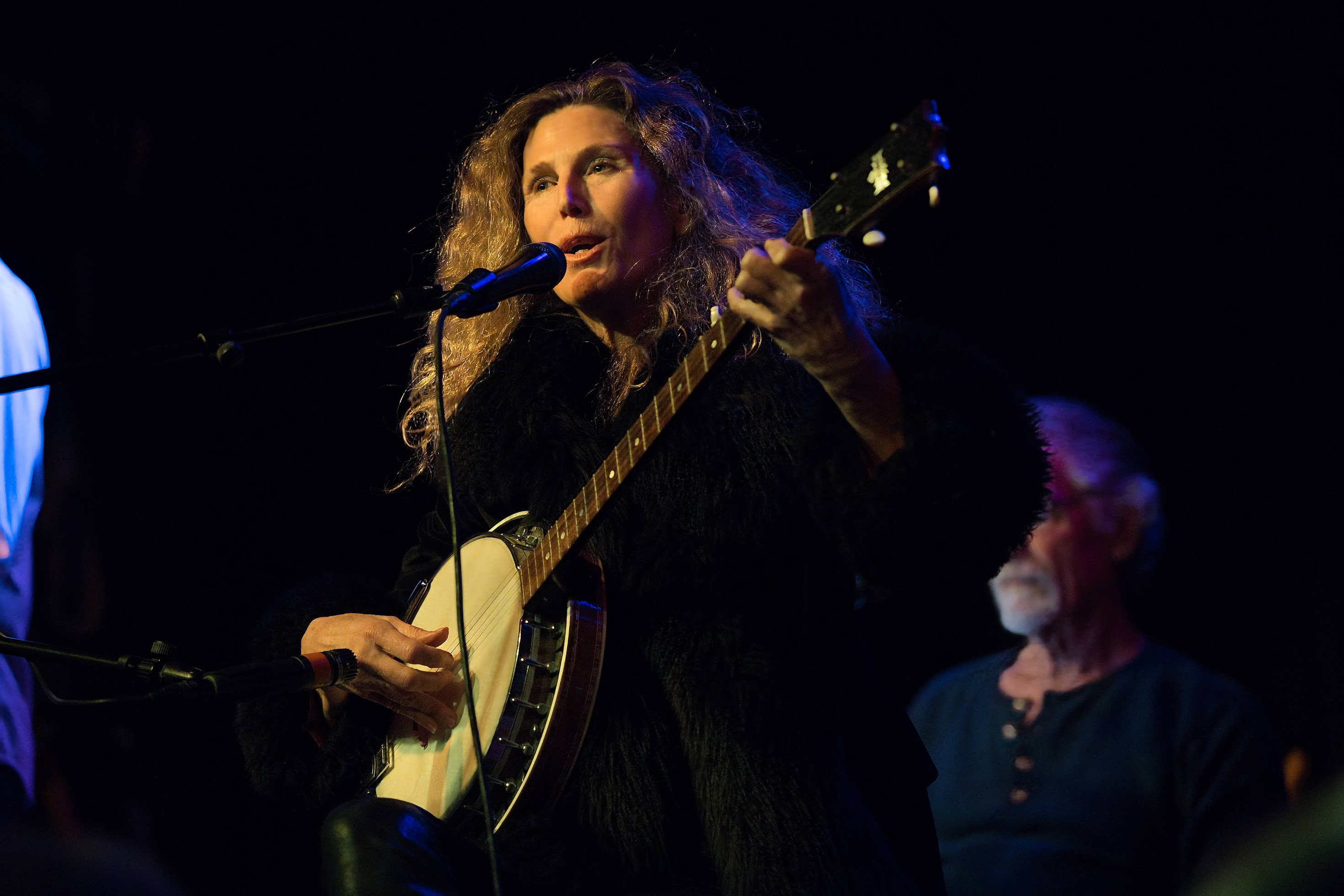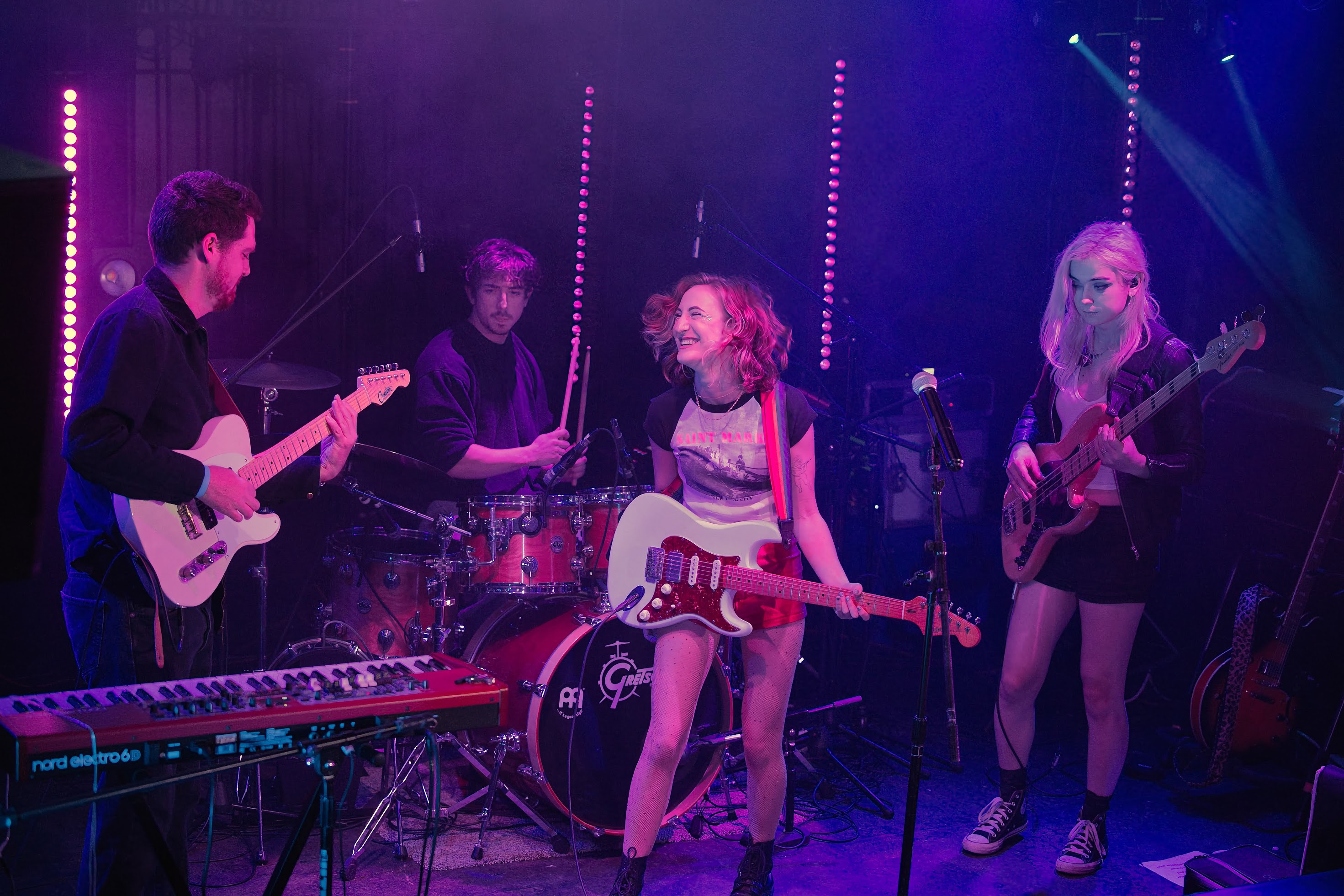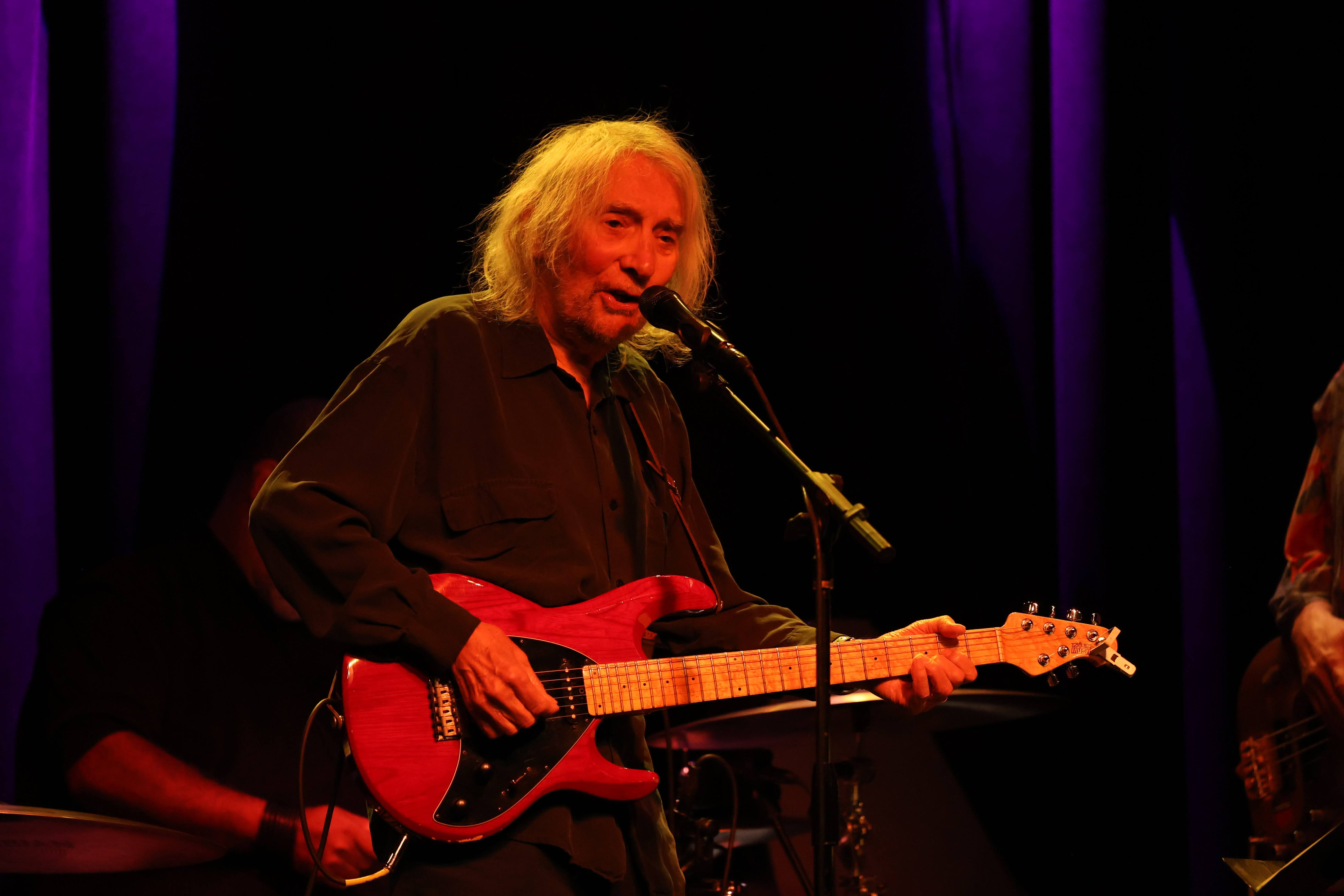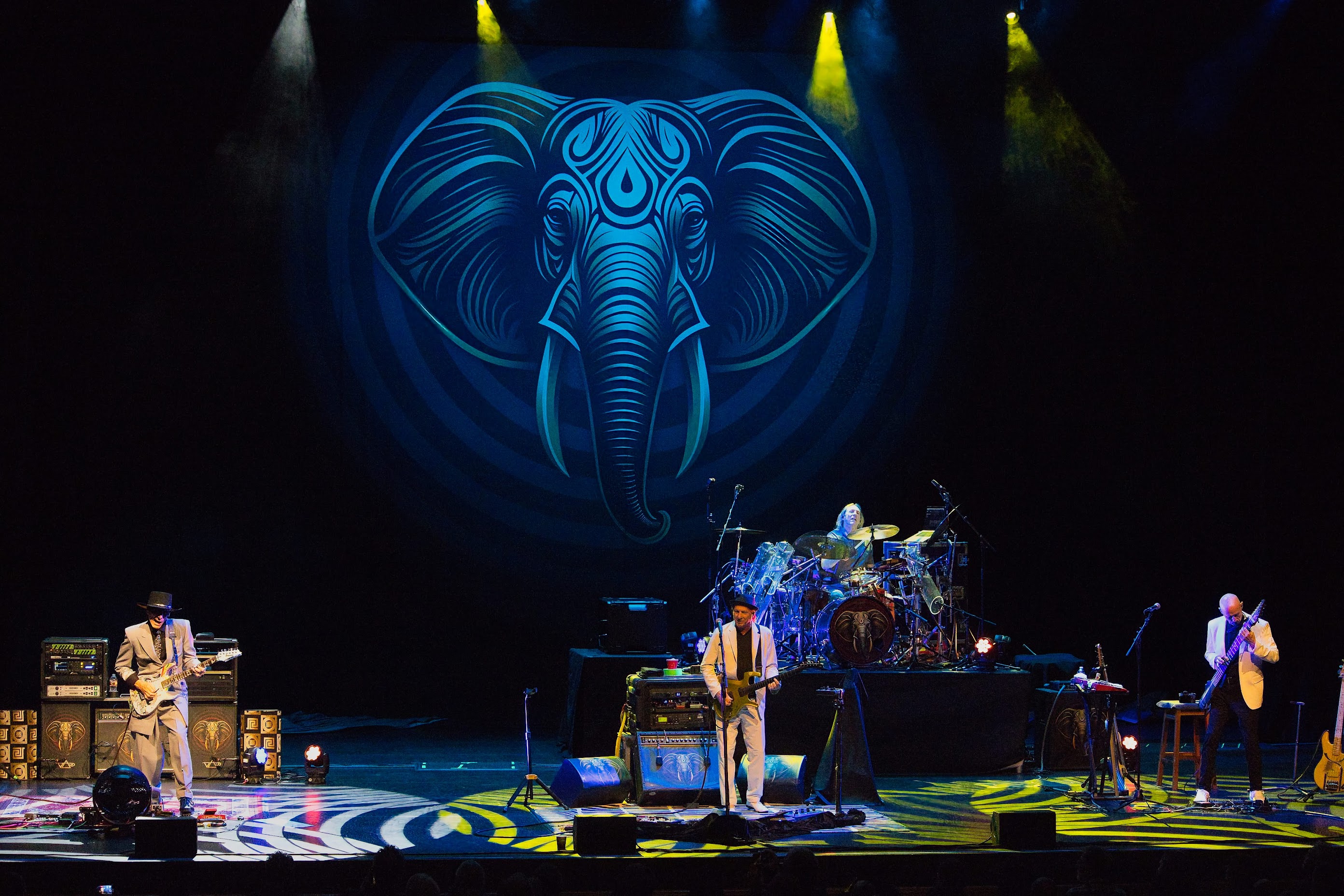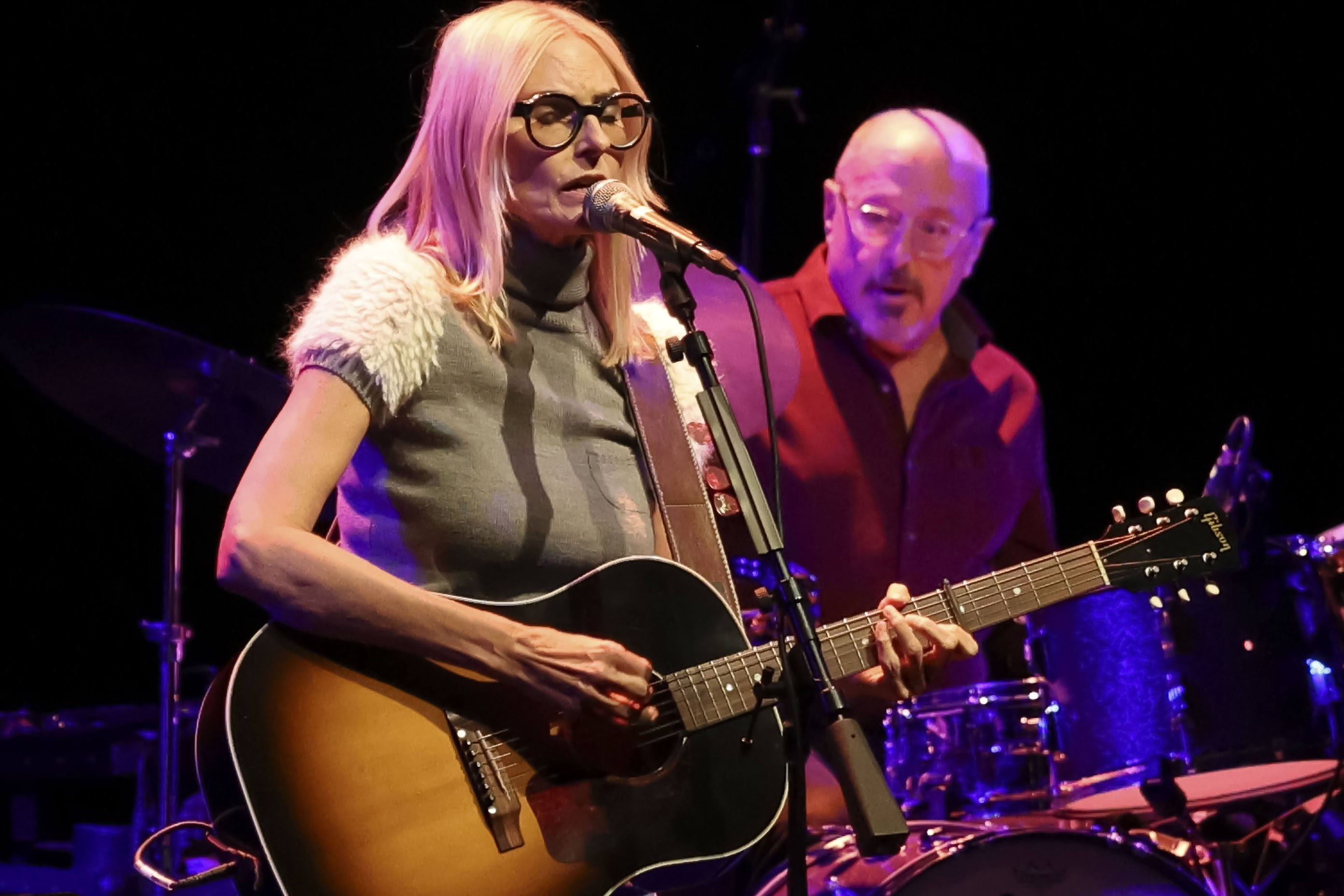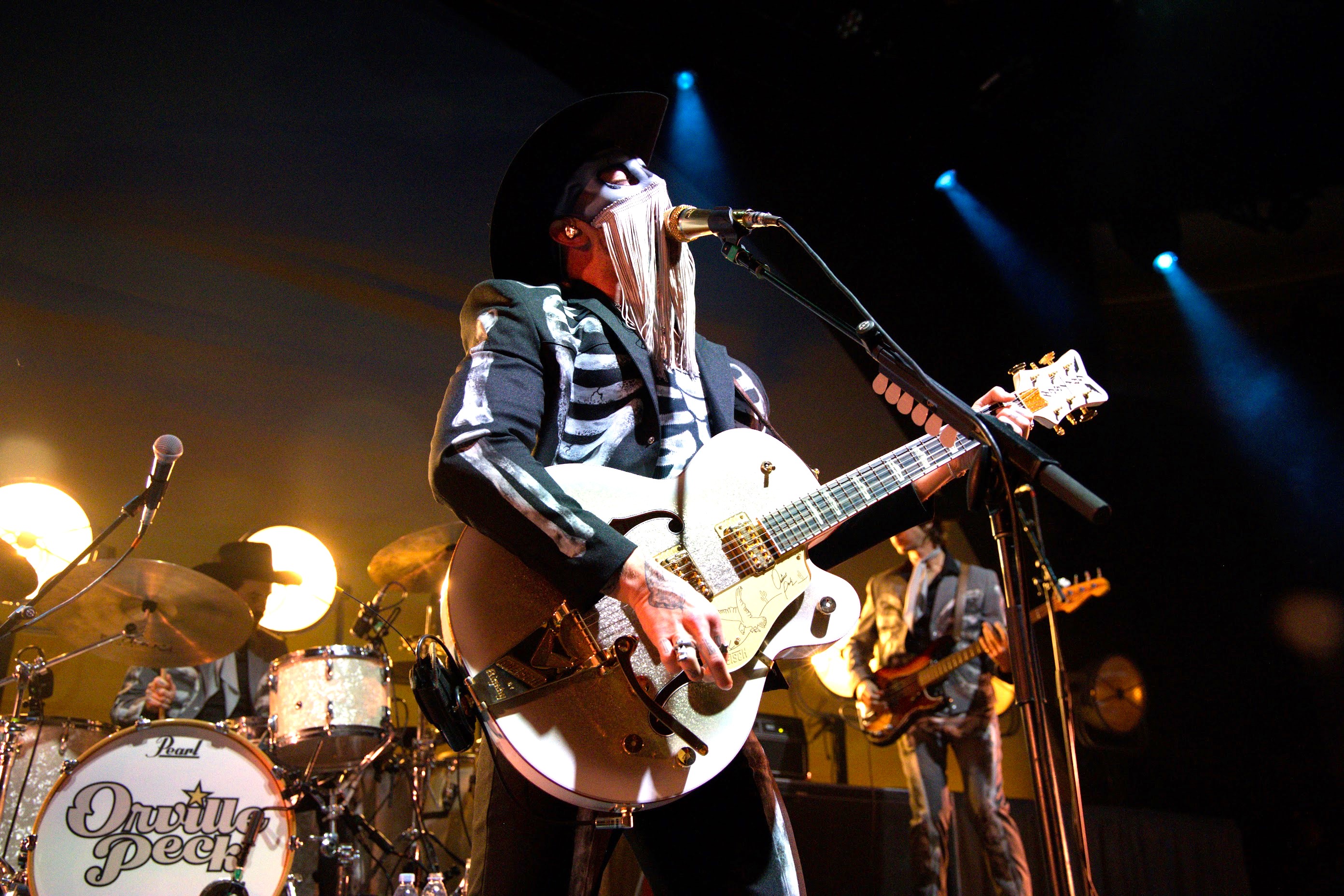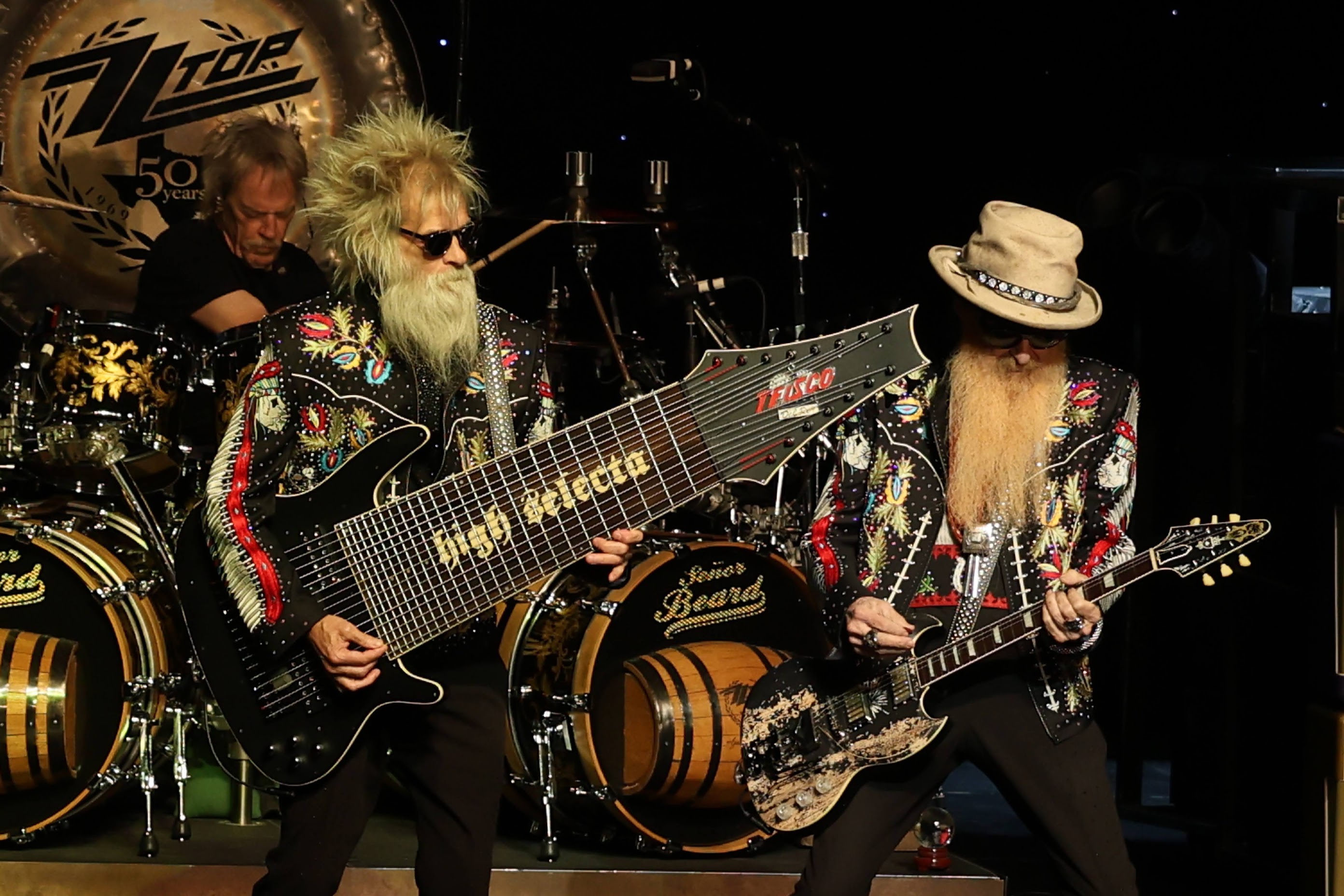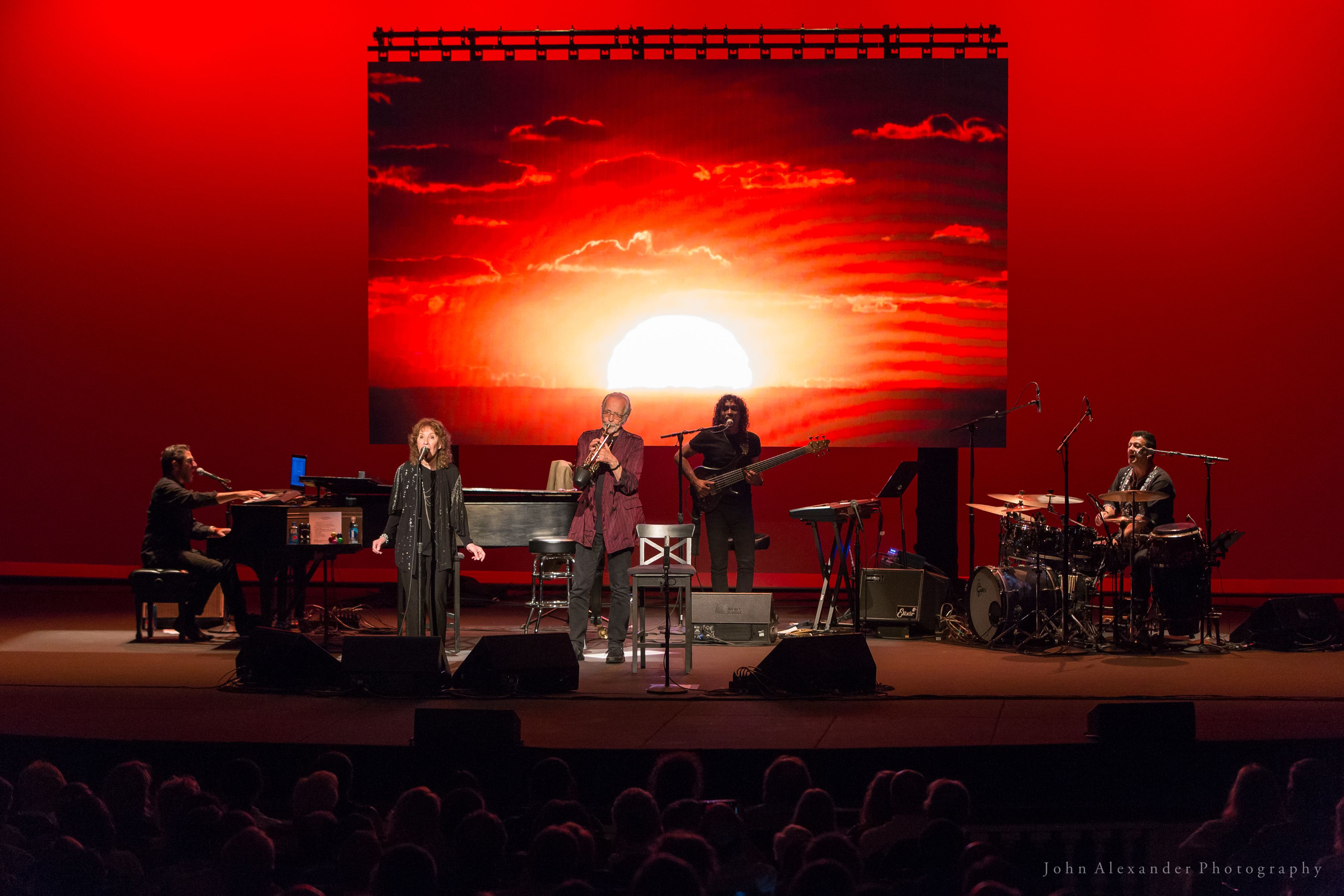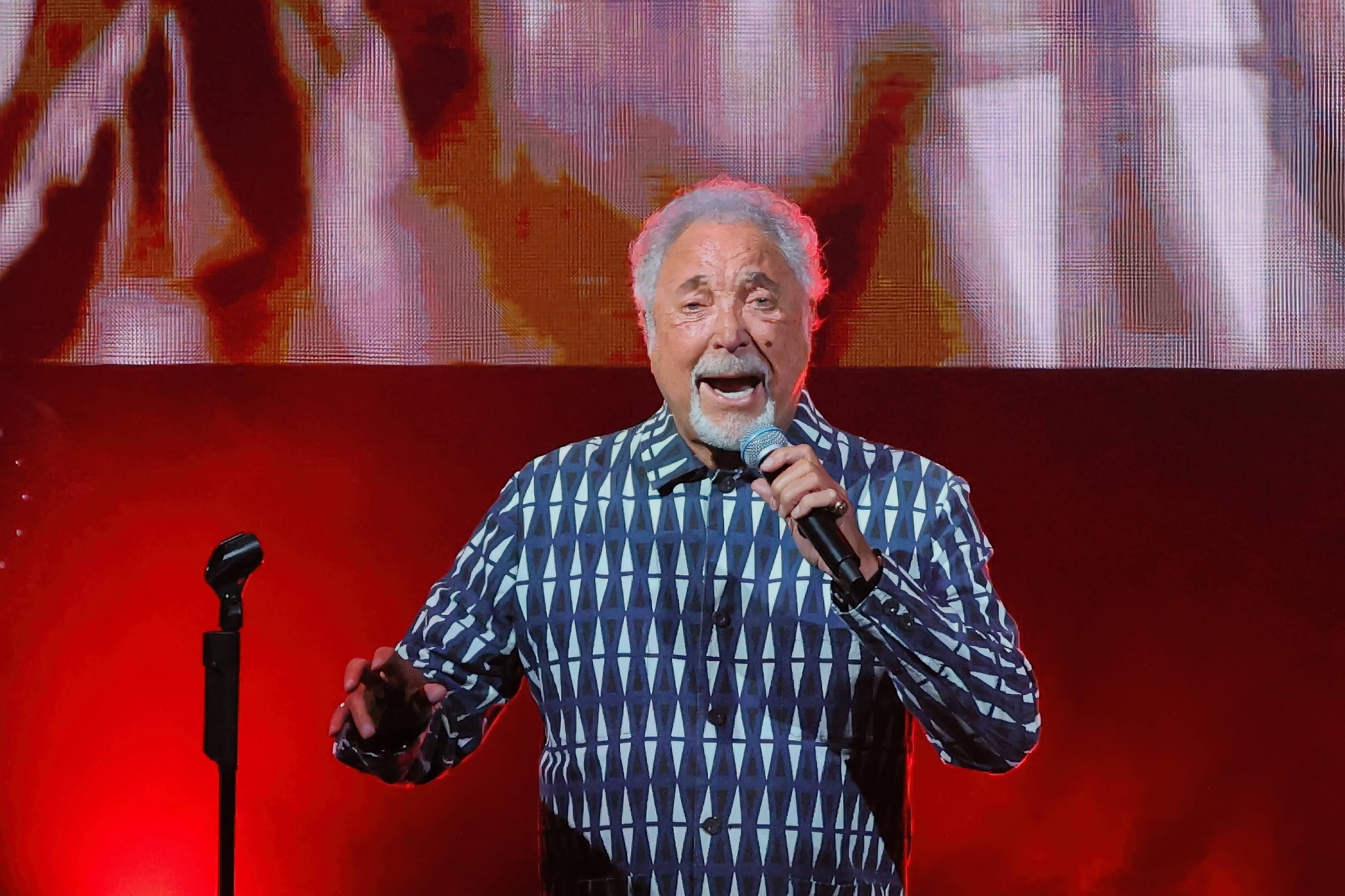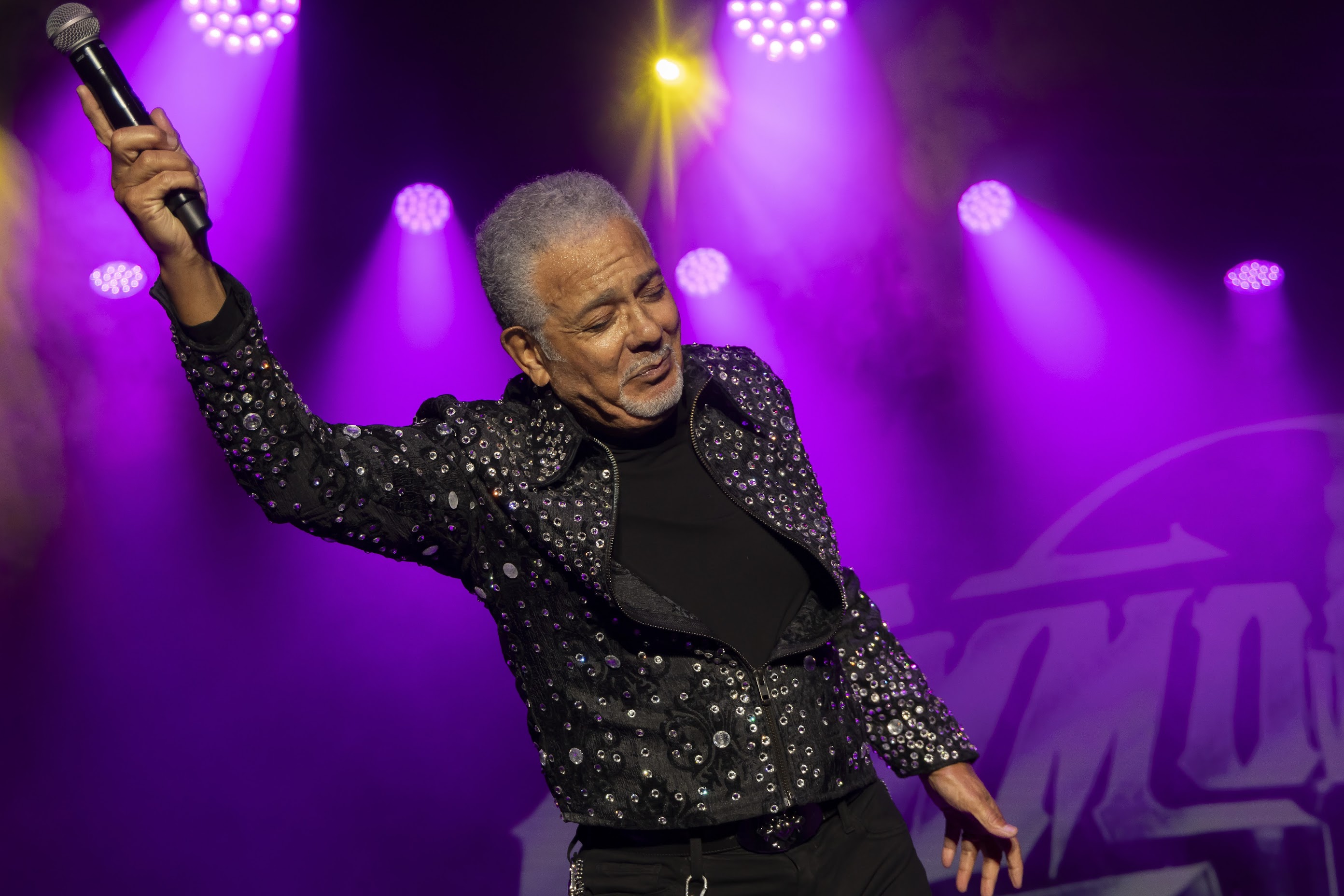David Crosby would have been proud of the mass musical assembly in Santa Barbara on August 20th to Celebrate his life at the “Stand And Be Counted” tribute concert. Many onstage and in the sold-out audience wondered (some out loud) whether Crosby was looking down, playing a mischievous joke. He may have sent the first tropical storm to the area since 1939, as well as a nearby earthquake, to put his stamp on the unique one-night performance.
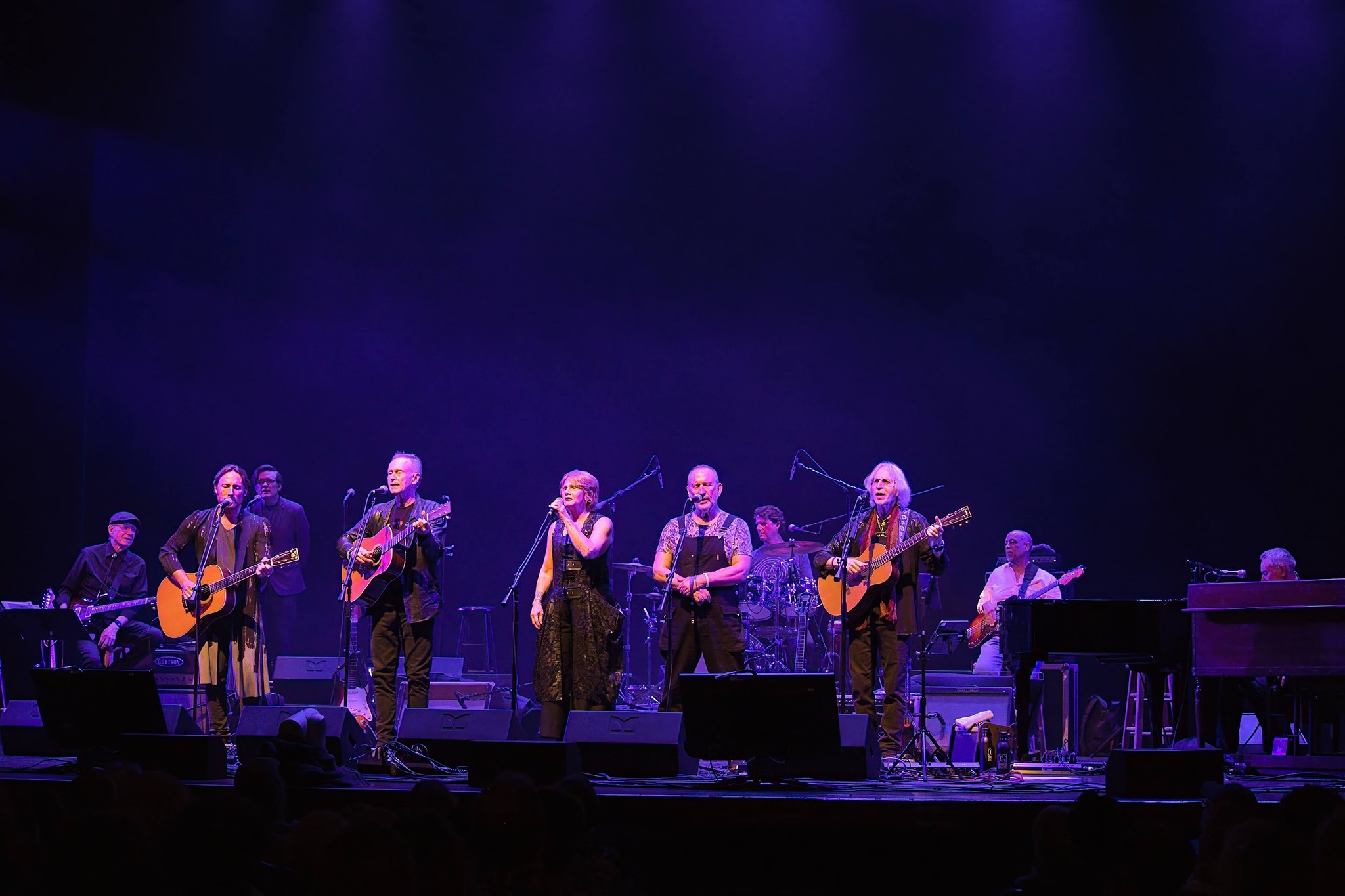
David Crosby's musical legacy didn't just gently tap the Lobero Theatre on that Sunday night – it practically waltzed in and set up camp. Initially conceived by the man himself as a celebratory extravaganza for Lobero’s 150th Anniversary Ovation Celebration, the Stand and Be Counted concert had to pivot into a beautiful tribute after Crosby's untimely departure. But, boy, did it pay homage with style!
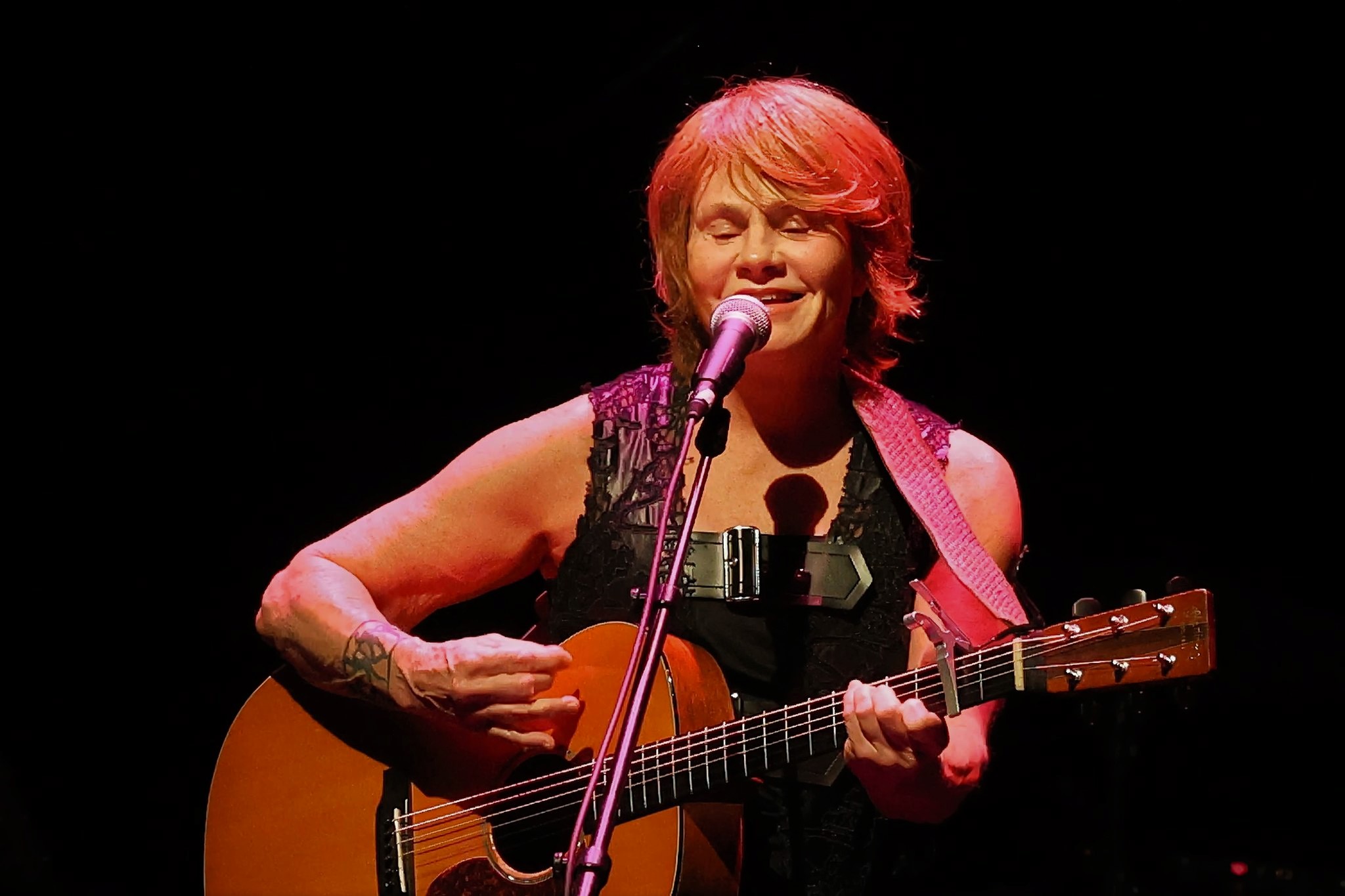
Enter contemporary folk maestro Shawn Colvin, who strolled onto the stage with her guitar, oozing the kind of mutual admiration usually reserved for double rainbows and perfectly brewed coffee. With a Crosby-curated set that could make even the staunchest skeptic swoon, she belted out a haunting rendition of “Twilight” that would've made even the moon pause to listen. And let's not forget her own classics like “Sunny Came Home,” “Cry Like an Angel,” and “That Don't Worry Me Now” – songs that she claimed had a direct line to Croz himself.
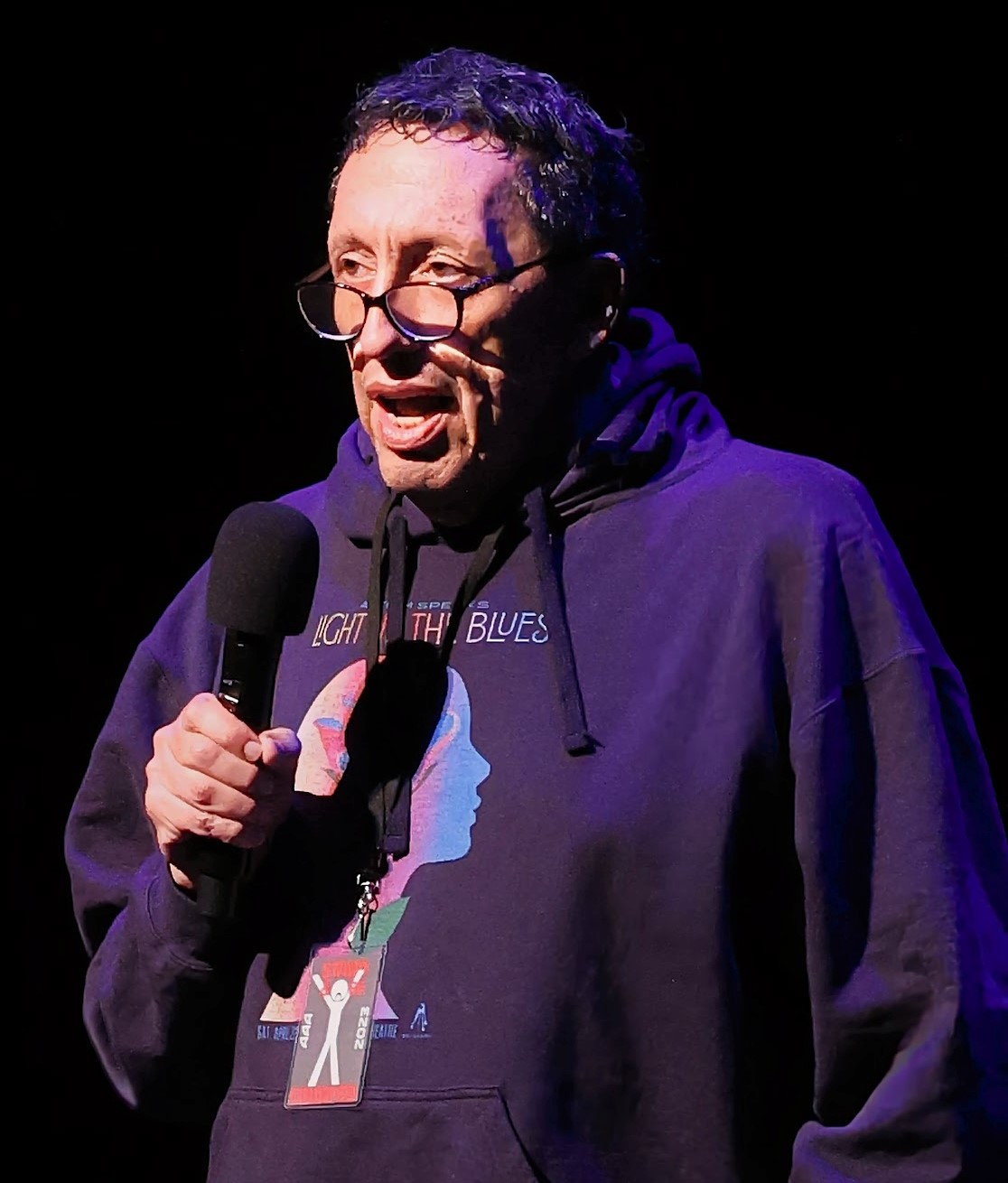
\After some engaging banter and video snippets from David Bender, the pen behind the Crosby-approved masterpiece "Stand and Be Counted: A Revealing History of Our Times Through the Eyes of the Artists Who Helped Change Our World," it was time to dial up the volume. The big band, handpicked by the man of the hour, took the stage, boasting a lineup that could make the heavens sway to the rhythm. The band included Stevie Distanislao on drums/vocals; Andrew Ford on bass; Lara Johnston on vocals; Dean Parks on guitar; Steve Postell, who played at the Lobero last fall with the Immediate Family, on guitar/vocals; Crosby’s son James Raymond, on keyboard/vocals; Chris Stills, son of Stephen Stills, on guitar/vocals; and vocalist Ken Stacey.
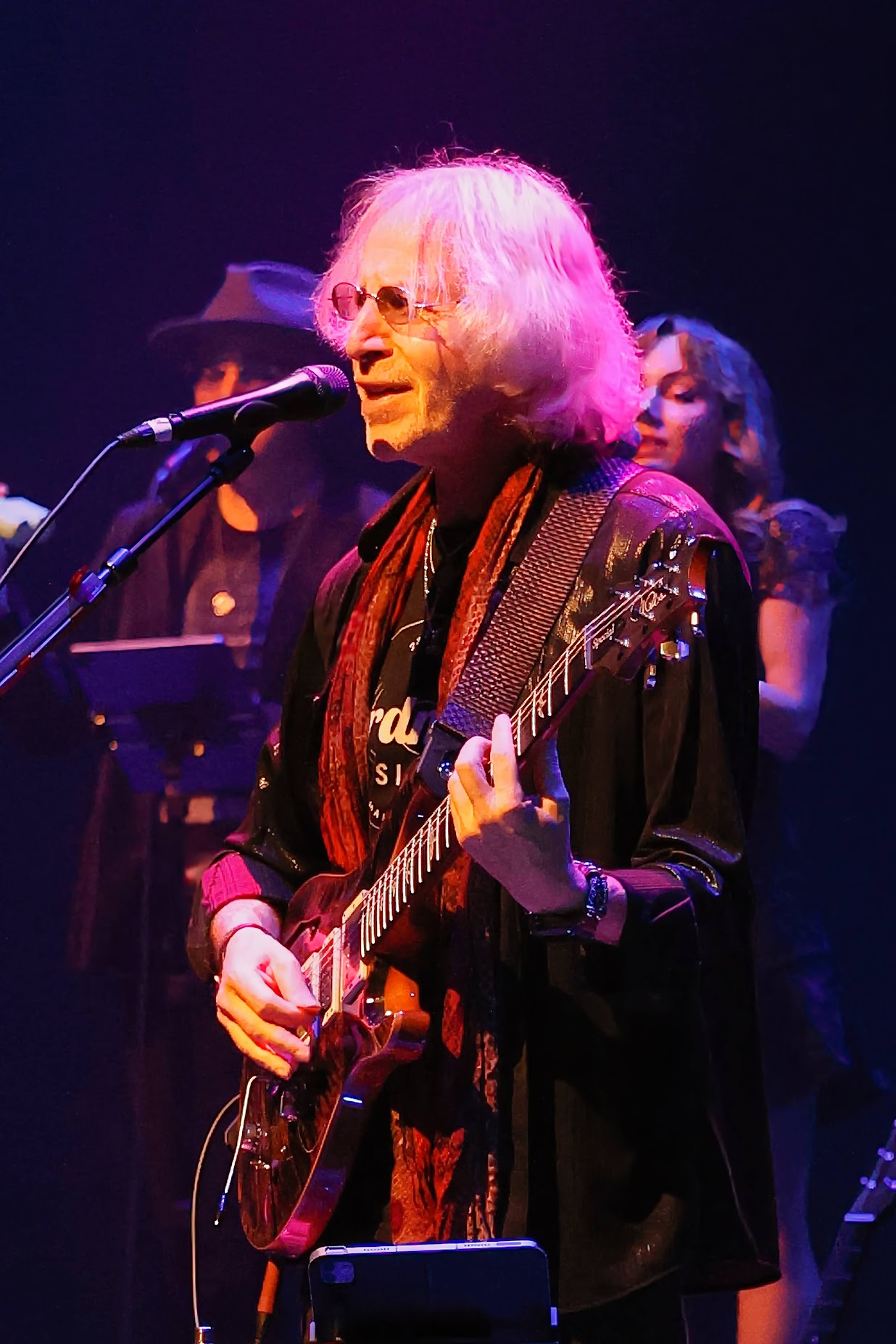
Postell, who picked up the torch and orchestrated this grand spectacle after Crosby's curtain call, burst onto the scene with “Long Time Gone,” delivering it like a heartfelt love letter to the cosmos. Eerily channeling his father's legacy, Stills blew the roof off with "Woodstock," the kind of performance that makes you believe time travel might be real. Guest vocalists Nathan McEuen (son of John) and Colvin were soon back on stage, and the fantastic harmonies continued.
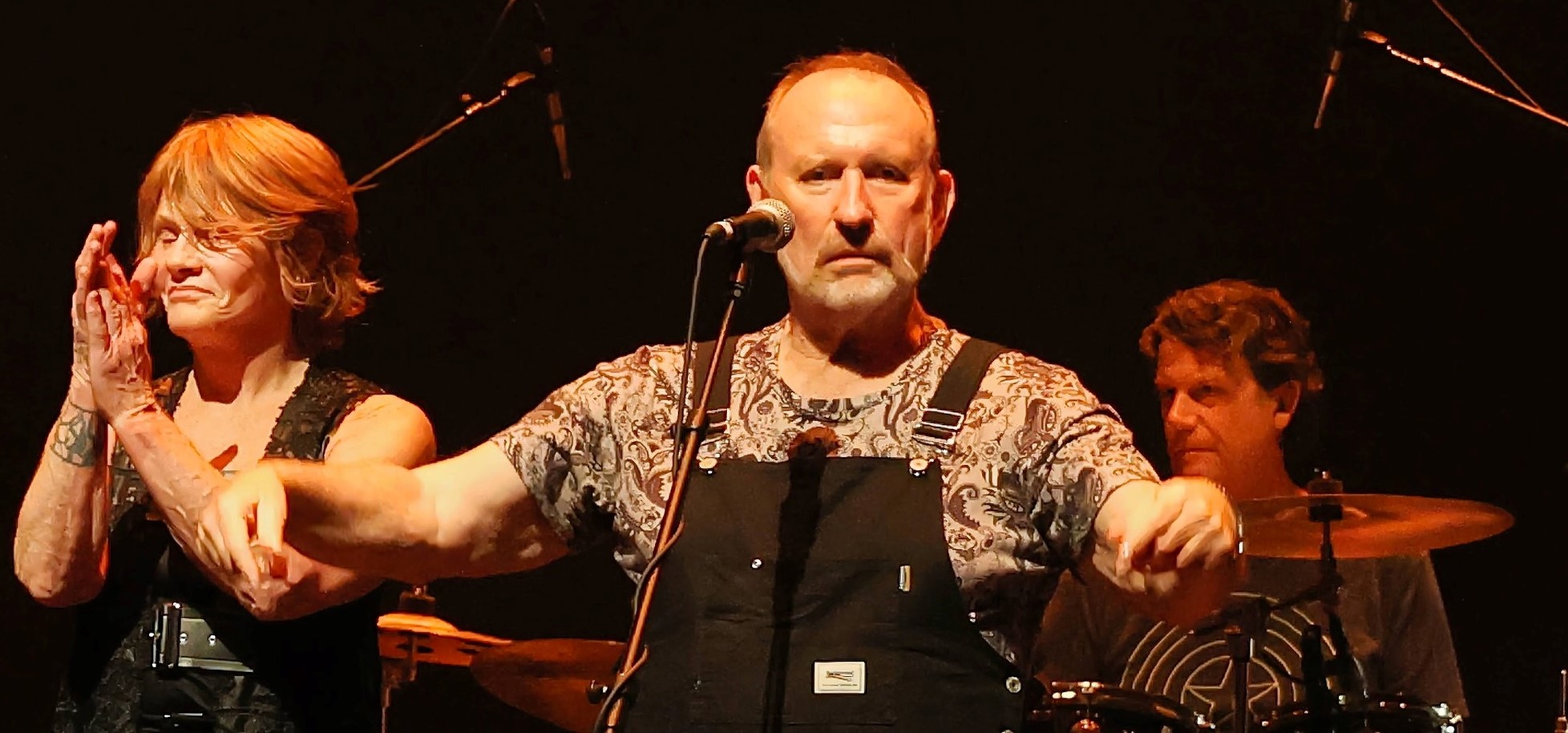
The crowd wasn't content to be spectators – Colin Hay knew this. A simple suggestion and the seats were empty, the masses grooving to the notes of "Teach Your Children." Richard Page, the possessor of an emotive vocal superpower, seized the moment and conquered "Deja Vu." And then came the lineup's version of the greatest hits – "Wooden Ships," "Delta," and the harmonious masterpiece “Helplessly Hoping,” a song that's a vocal trapeze act.
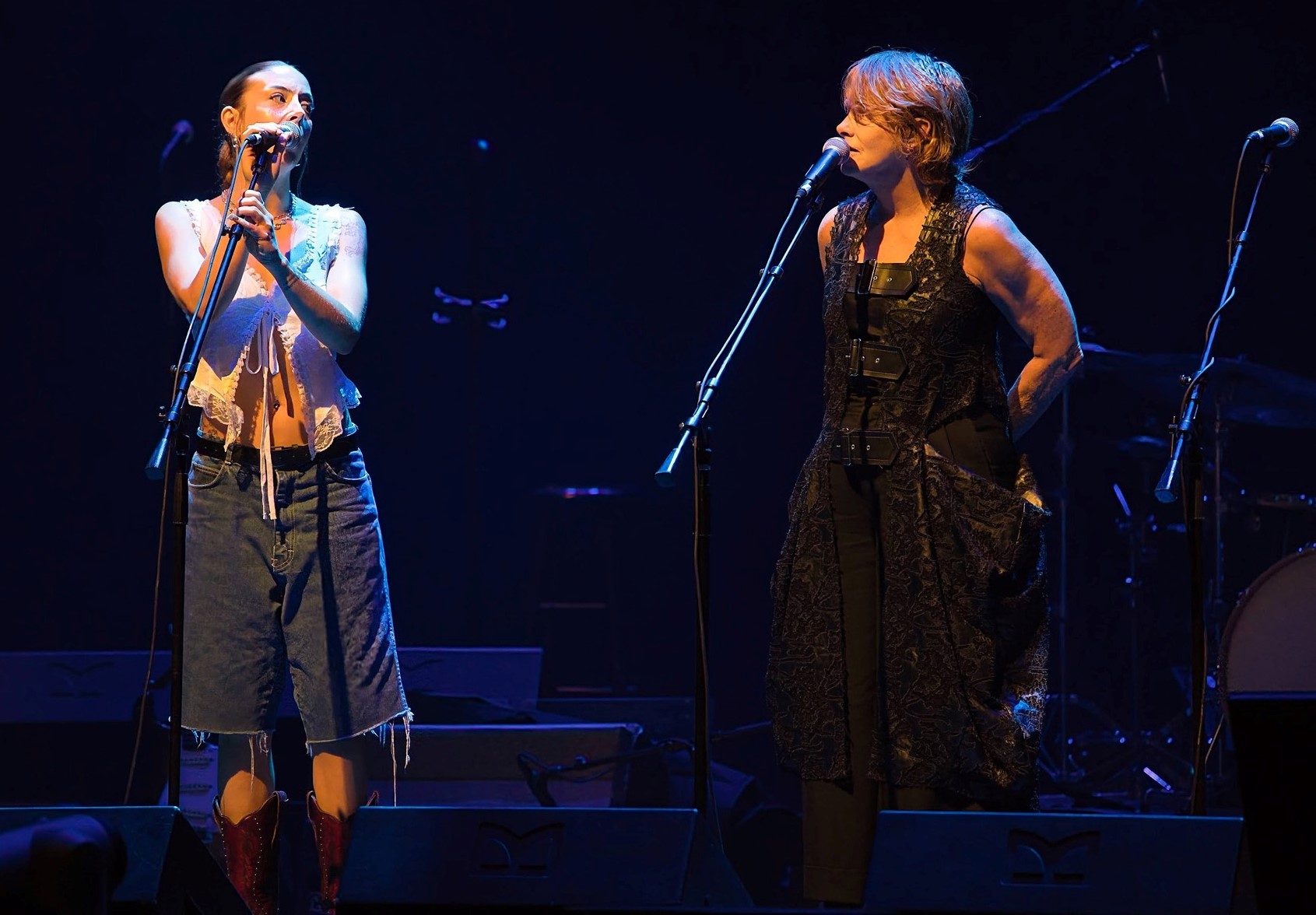
Colvin and the delightful Gracie Raymond joined forces for a "Guinnevere" duet that fluttered hearts. The entire ensemble stormed back onstage for a triumphant "Love the One You're With." Then, "I Won't Stay for Long" made an appearance, penned by James Raymond as an ode to Crosby's eighth and final album, "For Free."
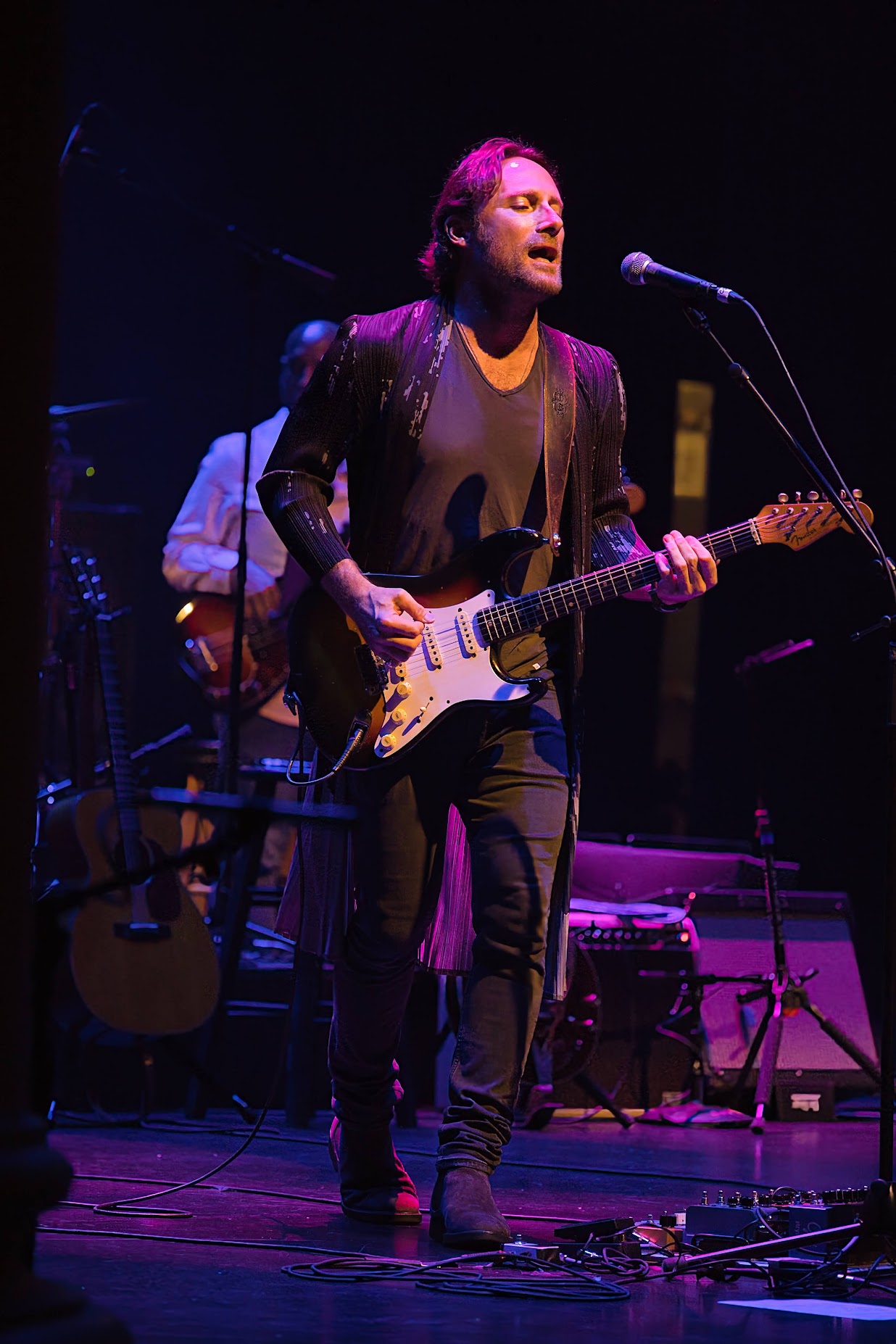
Hay, whose enthusiasm was contagious enough to jumpstart a defibrillator, rocked out to "Almost Cut My Hair," a nostalgia trip for the ages. Before performing the song, the balding Hay joked, “So that you know, I used to have long beautiful red hair.” “ "Carry On" followed suit, paving the way for an emotional avalanche featuring "Anything at All," “Ohio,” and the almighty “Find the Cost of Freedom,” commandeered by Stills in a performance so powerful you'd think the stage might launch into orbit.
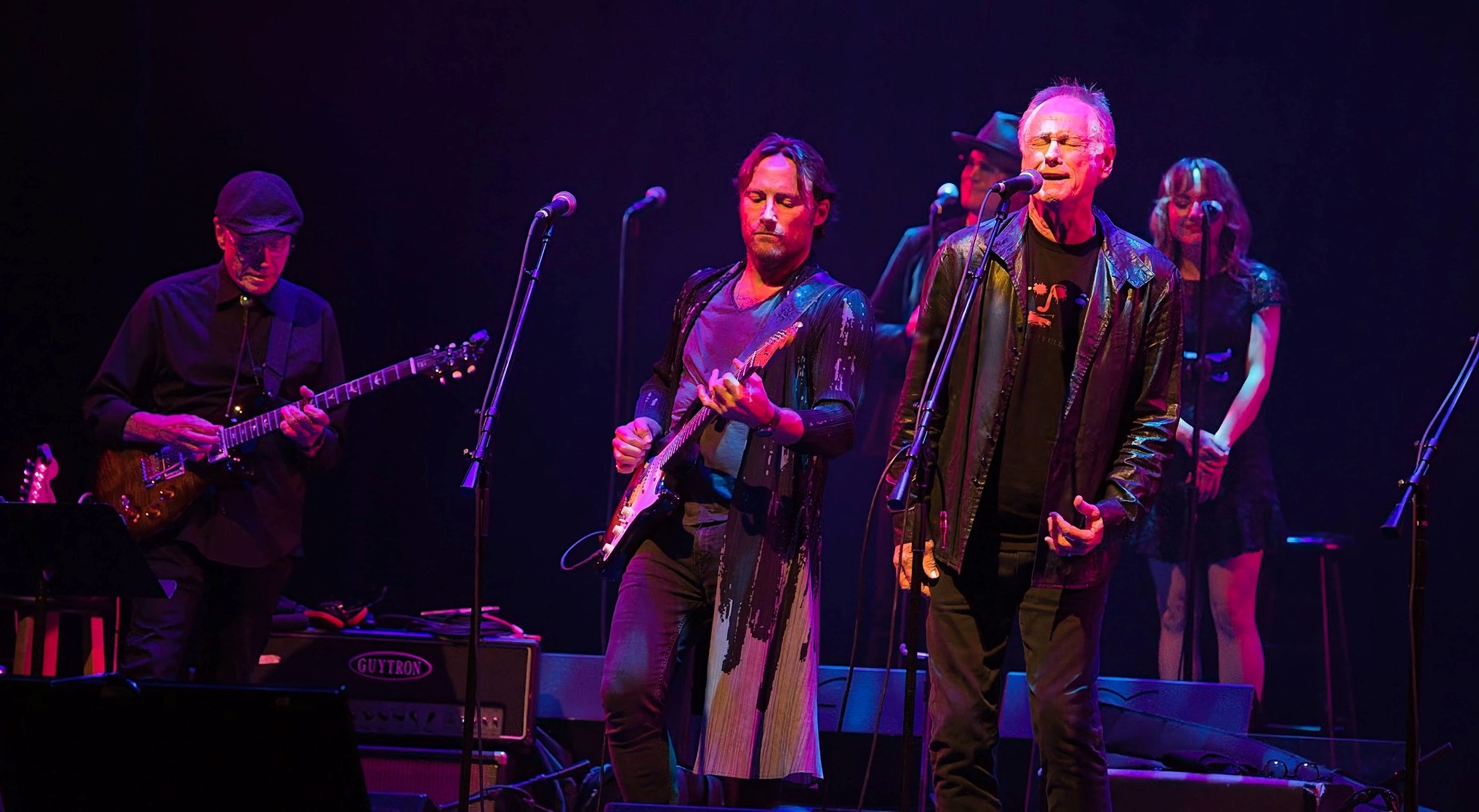
And those last lines, like a thunderous crescendo, “Find the cost of freedom / buried in the ground / Mother Earth will swallow you / Lay your body down” – they resonated like a booming echo, encapsulating an evening that was nothing short of a sonic odyssey. Just like David Crosby, this show didn't just fade away; it left its mark, an indelible ripple in the tapestry of musical history and another unique moment in the musical history of the Lobero Theatre.
